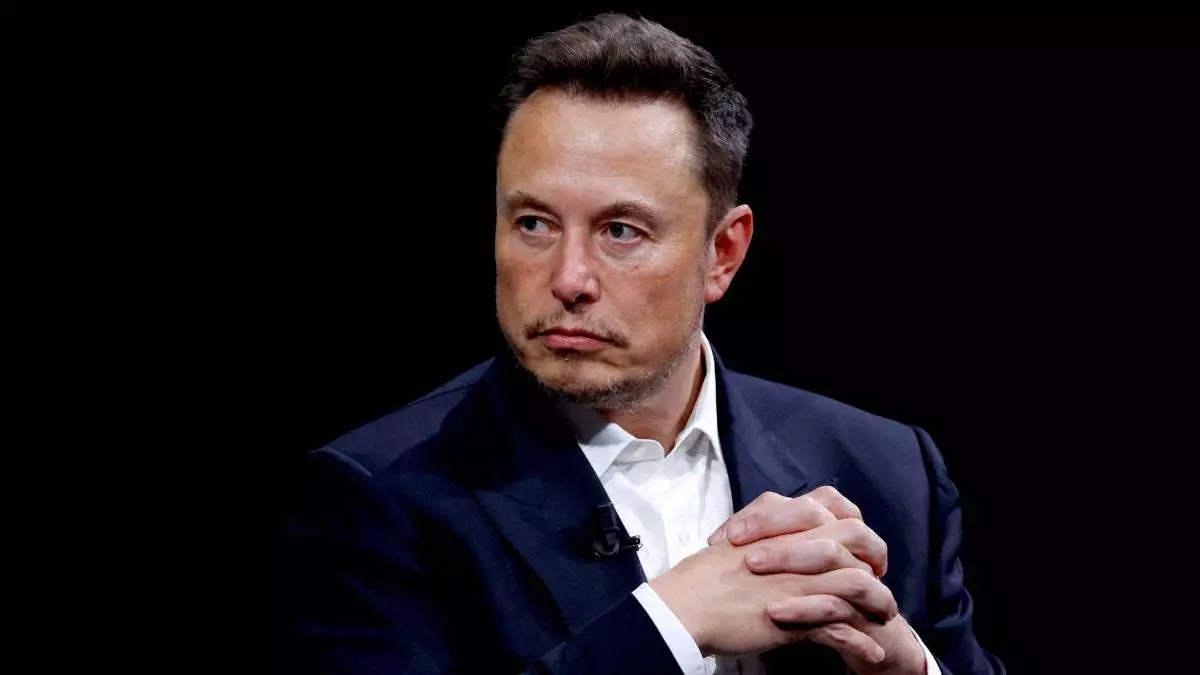The recent developments between the U.S. Securities and Exchange Commission (SEC) and billionaire entrepreneur Elon Musk highlight the ongoing tensions and complexities within corporate governance and personal accountability. The SEC’s move to seek sanctions against Musk for failing to comply with a court-ordered testimony sheds light on broader themes related to regulatory enforcement, high-profile business conduct, and the potential ramifications of perceived misconduct.
Elon Musk, known for his roles as the CEO of Tesla and SpaceX, is facing scrutiny from the SEC regarding his acquisition of Twitter, a purchase valued at a staggering $44 billion. The SEC’s investigation centers on whether Musk breached securities laws during the initial stages of his Twitter stock purchase in early 2022. The necessity for regulatory oversight stems from the importance of transparency in the financial markets. When investors accumulate significant stakes in publicly traded companies, they are mandated to disclose their ownership within specific timeframes. This disclosure is crucial not only for maintaining an orderly market but also for protecting the interests of other investors.
Musk’s delayed announcement regarding his acquisition of a 9.2% stake in Twitter has drawn substantial criticism, with claims that he waited too long to file the necessary disclosures. Such actions raise valid questions about his commitment to adhering to established financial regulations, especially from shareholders who deserve prompt and accurate information about the ownership landscape of the companies in which they invest.
Musk’s recent failure to appear for his scheduled testimony has escalated the situation, leading the SEC to consider sanctions for civil contempt. The timing of Musk’s absence—directly correlating with his involvement in the launch of SpaceX’s Polaris Dawn mission—invites a closer inspection of his priorities as both an entrepreneur and a public figure. While the gravity of his responsibilities as the chief technical officer of SpaceX cannot be overstated, the proximity of his corporate obligations to legal ones raises significant ethical considerations. Critics argue that the deliberate timing of his notification, just hours before his testimony, suggests a strategic maneuver to evade regulatory scrutiny.
The SEC’s characterization of Musk’s actions as “gamesmanship” hints at a larger narrative concerning how business leaders may sometimes navigate regulatory frameworks. From the SEC’s perspective, adherence to legal obligations should never be overshadowed by business interests, especially when the integrity of the financial market is at stake. This view underlines the expectation that even influential figures must be held accountable to the laws governing their activities.
The ramifications of this ongoing dispute transcend the confines of a single legal case. They force a reckoning not just for Musk, but for corporate America as a whole. What does this conflict reveal about the relationship between business and regulation? Furthermore, how should high-profile figures manage the delicate balance between their vast responsibilities and legal obligations? These questions compel a reevaluation of what it means to lead in today’s fast-paced, high-stakes environment.
Musk’s attorney has described the potential sanctions as “drastic” and claims that his client acted out of necessity, emphasizing that Musk’s physical presence was critical during the SpaceX mission. On the other hand, the SEC’s assertion that Musk could have notified them sooner indicates a potential divide between what constitutes reasonable justification and what appears as a calculated evasion of accountability. It brings to light the broader issue of emergency provisions and their interpretation in corporate governance.
As this legal saga unfolds, the implications of Musk’s case will likely resonate through the corridors of corporate power and regulatory bodies alike. The SEC’s commitment to pursuing accountability may encourage other influential figures to reconsider their approach to regulatory compliance. Ultimately, this scenario emphasizes the necessity for transparency and adherence to legal obligations in maintaining trust between the public and those who lead major corporations.
The stakes are high: for Musk, for the SEC, and for the principle of corporate governance itself. As both parties prepare for the upcoming testimony, the outcome remains uncertain, but it is clear that this case serves as a focal point in the ongoing dialogue surrounding the intersection of business ethics and regulatory authority. The resolution of this conflict may not only determine the fate of one of the world’s most notable business leaders but could also set a precedent that shapes the future of corporate accountability in the U.S. and beyond.


Leave a Reply